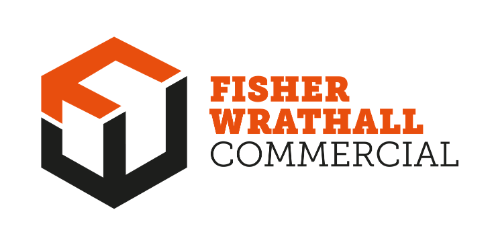What are Business Rates?
If you occupy a building, or part of one, that you use for commercial purposes, then you may be required to pay Business Rates, unless you qualify for Small Business Rates Relief. Occasionally the landlord of the property charges the occupier a rent that also includes an amount for the Business Rates. Your lease will normally dictate who is responsible for paying the business rates.
Business Rates are calculated in a two-step process. First, the Valuation Office Agency (VOA) will estimate the annual rent that the property is likely to achieve for a statutorily fixed period. This is called a Rateable Value (RV) and is placed in the rating list alongside the address of the property, to form the assessment.
The second step is that the RV is then used to create the liability by multiplying it by the Uniform Business Rate (UBR) factor which is set every year. This is typically around 50p in the £ and therefore the charge is approximately 50% of the annual rent. The UBR is adjusted every year for inflation by applying the Retail Price Index (RPI). For example in 2020/21 the UBR is 51.2p. There are many exemptions and adjustments that can apply to the amount paid and so this is a general rule of thumb only.
What is Small Business Rates Relief?
If the Rateable Value of your property is less than £15,000, and your business only uses one property, you can apply for Small Business Rates Relief through your local council. However, you may still be able to apply for Small Business Rates Relief if you use more than one property, so we recommend that you take advice from your local council.
You will not pay business rates on a property with a rateable value of £12,000 or less (information in 2020). For properties with a rateable value of £12,001 to £15,000, the rate of relief will go down gradually from 100% to 0%. For example, if your rateable value is £13,500, you will get 50% off your bill. If your rateable value is £14,000, you will get 33% off your bill.
If you get a second property, you will keep getting any existing relief on your main property for 12 months. You can still get small business rate relief on your main property after this period if none of your other properties have a rateable value above £2,899, and the total rateable value of all your properties is less than £20,000.
***This information is correct as at October 2020. To read more please visit https://www.lancaster.gov.uk/sites/business/business-rates/small-business-rate-relief ***
What are Rateable Values?
As stated above, Business Rates are calculated based on Rateable Values and these are available as a public record. As a very approximate guide, Rateable Values are multiplied by something called the Uniform Business Rate (UBR), which increases each year in line with inflation.
Although this calculation applies to most commercial properties, there can be adjustments to these calculations. It is also worth noting that Business Rates are still payable on empty buildings unless they are listed.
What are the types of Commercial Lease?
When taking on a lease you should consider having a survey done so that you aren’t responsible for improving the condition of the building, We offer Schedule Of Conditions survey which protects against costly repairing obligations at lease end.
For some Commercial Leases, the lessee (the tenant) is responsible for all internal repairs, whilst other Commercial Leases may mean that the lessee is responsible for both internal and external repairs, though they are not expected to improve the premises that they rent in any way. This is the difference between a Full Repairing Lease or an Internal Repairing Lease.
What is Change of Use?
If you wish to change the use of Commercial premises you should check whether Planning Permission is required. Although we would always recommend taking independent advice, you can view the Use Classes Order online and this will provide you with a basic guide as to which changes of use may require Planning Consent.
When is VAT Payable?
VAT may be payable on rent or purchase prices and this depends on whether the previous owner has made an “option to tax.” If you’re purchasing a property in a non-VAT registered entity, you may not be able to claim back any VAT in the future. We recommend you take professional advice, in order to ensure you make the most appropriate choice for your business.
If you are converting a Commercial Property where the previous owner has “opted to tax,” then it is very important to take tax advice prior to the purchase if you are looking to recover VAT on materials and labour costs.
Who is responsible for Utilities?
The responsibility for utilities typically lies with the occupier (or business), but where there are communal areas a contribution towards these costs may also be required.
If you have any queries regarding any of the areas above, please do not hesitate to contact us and a member of the team will be in touch.
Talk to commercial property experts


